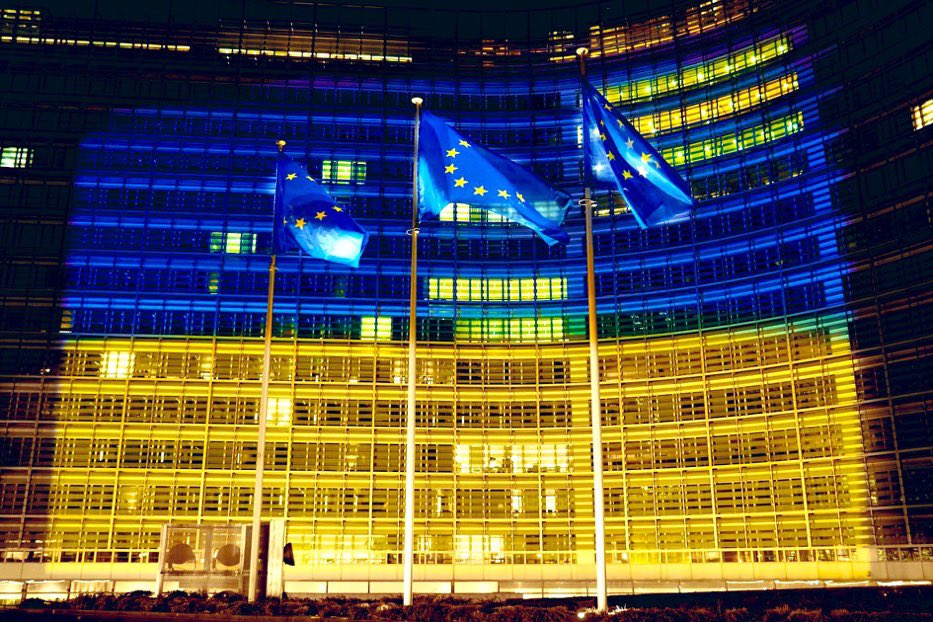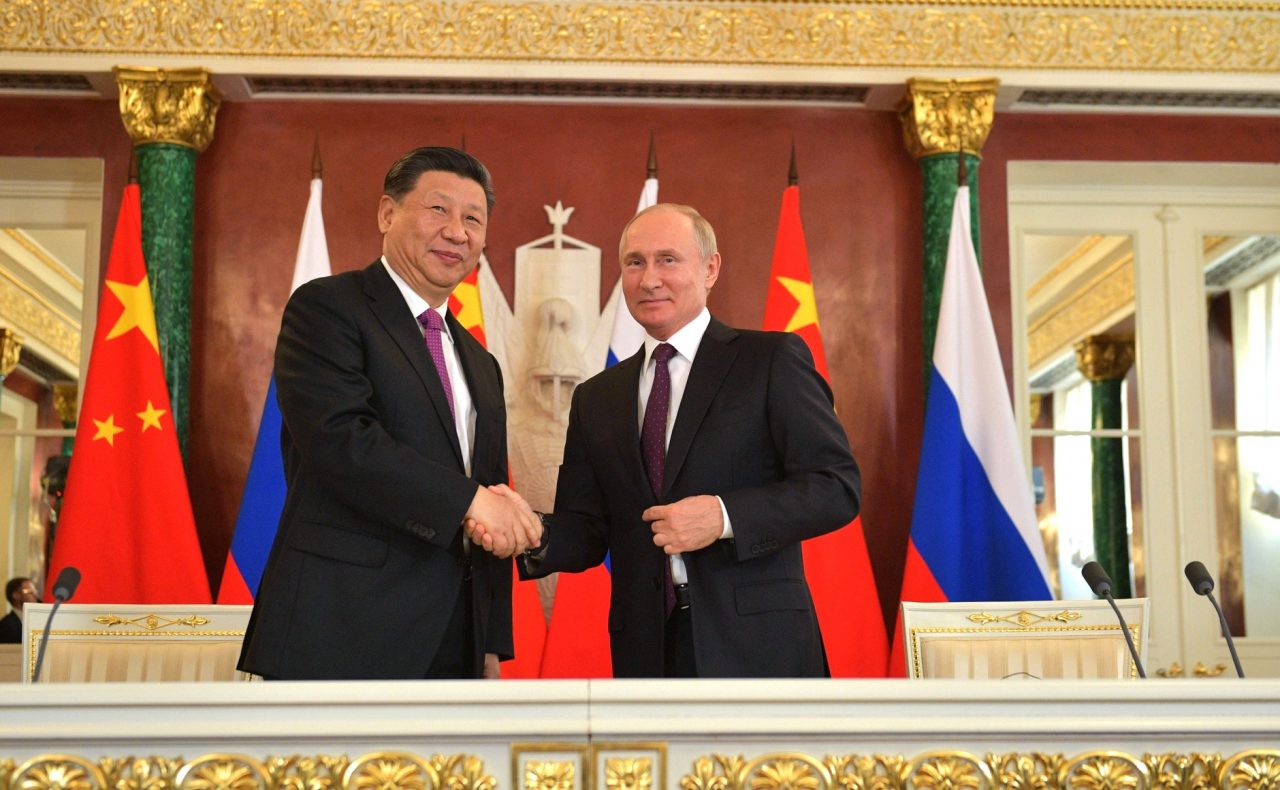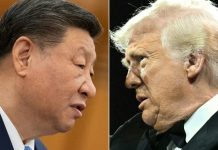Russian President Vladimir Putin’s decision to recognize the independence of breakaway Ukrainian regions of Luhansk and Donetsk and its subsequent military action in the country has drawn global condemnation.
Amid all the global tensions, China’s state broadcaster shared an online appeal from the Ukrainian embassy in Beijing requesting donations to its army before quickly removing the post.
The Ukrainian appeal, which urged people to donate to the country’s central bank, was originally published last week. The message vanished from the Chinese Twitter-like site – Weibo before the embassy published the same post.
“To resist Russia’s armed invasion and safeguard Ukraine’s sovereignty and territorial integrity, the National Bank of Ukraine has announced the opening of a special fundraising account,” the post read.
Earlier, Ukraine’s Embassy issued a statement in Chinese on February 22, which became a trending topic on Sina Weibo. Weibo is the Chinese equivalent of American microblogging site Twitter, which along with many other foreign social media platforms, has been banned by the communist country.
The Ukrainian Embassy’s post was followed by statements from a number of other embassies, including Russia, France, and the United Kingdom. Chinese netizens were enthralled, saying they couldn’t believe Weibo had become so popular among foreign diplomatic missions, just like Twitter.

The Russian Embassy posted that the President had signed the Executive Orders on the recognition of “DPR” and “LPR” and inked treaties of Friendship, Cooperation and Mutual Assistance between Russia and the two parties.
It also shared Russia’s Permanent Representative to the UN Vasily Nebenzya’s statement at the UN Security Council, who said, “I remind that by the moment the Minsk Agreements were signed, the LPR and DPR had already proclaimed independence. The fact that Russia recognized this independence today makes no changes to the list of sides to the Minsk Agreements, because Russia is not a side thereto.”
Ukrainian embassy in BJ posted its 2.22 official statement in Chinese on weibo. The post has attracted 37,000 comments.
If you scroll down the comments, you will find interesting patterns. Great materials for a case study. 1/3 https://t.co/zeVSmBxJuZ pic.twitter.com/I3bPyYJxtd
— ???? ?? (@lingli_vienna) February 22, 2022
“Another point is that Ukraine, under the Western patronage, has long been openly sabotaging the Minsk Agreements that were supposed to start being implemented back in 2015”, Nebenzya was quoted as saying by Global Times.
The “Ukraine issue” became a hot topic on Weibo with some 900 million views and 200,000 discussions even though the official response from China has been lukewarm and far from condemnation.
This comes a few days after the British Prime Minister Boris Johnson took to this Chinese microblogging site to criticize Putin. Johnson had then warned that Putin still has time to “step back.”
However, Chinese netizens were perplexed, with some even questioning whether Putin had a Weibo account. Some assumed the UK prime minister was attempting to “influence Chinese netizens,” according to China’s state-run media.
A few BBC live page lines today ⚡️ on the unusual spat that’s broken out on Chinese Weibo between two government accounts: the Russian Embassy in China, and the official No 10 Downing Street account (yes it has a Weibo)https://t.co/k7FwqJ30bq pic.twitter.com/J64SbOw5kg
— Kerry Allen 凯丽 (@kerrya11en) February 16, 2022
Johnson’s Weibo tweet reportedly attracted 32,000 comments and 1.1 million likes, according to the China Daily.
It was then that the Russian embassy called the remarks “absurd” and a war of words ensued between the two parties, becoming a talking point among Chinese Weibo users.

Ukraine Hot Topic On Weibo
Ukraine criticized Russia’s recognition of the LPR and DPR as independent states in a statement on Weibo, calling it a severe violation of the UN Charter and Ukraine’s sovereignty and territorial integrity within internationally recognized borders.
The statement said the decision “will not produce any legal effect, and it has sharply escalated the situation and can mean the Russian Federation’s unilateral withdrawal from the Minsk agreements. … Taking into account all risks, we do not give in to provocations and will continue to work on the political and diplomatic settlement of the Russian-Ukrainian armed conflict.”

“Therefore, we insist on tough sanctions against Russia to send a clear signal that no further escalation of the situation will be allowed. It is time to act to end Russian aggression and restore peace and stability in Europe,” the statement was quoted by Global Times.
Following the announcement, a number of European embassies in China, notably France and the United Kingdom, released statements on Weibo. The embassies called for an emergency UN Security Council meeting, as well as penalties and retaliation against Russia.
“Another chess piece played by the US. It’s pathetic,” commented a netizen on the post of the Ukrainian Embassy to China. Others mocked that “the Ukrainian war has been moved online because of the pandemic, and please forgive for any inconveniences.”
The foreign embassies’ outreach to Weibo could be seen as an effort to reach out to Chinese citizens who do not have access to Twitter and thus, remain aloof from informed opinions on world affairs. China started banning foreign social media sites almost a decade ago and launched homegrown social networking sites. Weibo can only be accessed by Chinese citizens with a Chinese ID and phone number.
China’s Measured Response
Reacting to the Ukraine crisis, China’s UN envoy urged “all parties” to exercise patience and avoid “fueling tensions”. The envoy stated in a brief address at a UN Security Council emergency meeting on the night of February 21 that Beijing supported and encouraged all efforts for a diplomatic solution, and that all issues should be considered on the “basis of equality”.
China's latest statement on Ukraine: remain calm, ease tensions and resolve differences. pic.twitter.com/A2S2EGhxuZ
— Xu Pan (@PenicilinPan) February 22, 2022
In the face of mounting criticism, Russian President Putin visited Beijing on February 4 to meet with his Chinese counterpart Xi Jinping. This came a time when Western nations boycotted Beijing Winter Olympics.
China and Russia have been presenting a united front in the face of what they see as a Western intervention in their domestic affairs, opposing US-led sanctions and frequently voting as a bloc at the United Nations.
Not too long ago, both blocked a resolution for imposing additional sanctions on North Korea in retaliation for its missile tests. They also vetoed several UN resolutions on military junta-ruled Myanmar.
- Contact the author at sakshi.tiwari9555@gmail.com
- Follow EurAsian Times on Google News




